Titilope is a remarkable discovery. Raised in Nigeria and Canada, she has returned to become one of the fresh emerging voices in the Nigerian spoken word (and poetic) space. In April 2015, she became the first inaugural poet at the swearing in ceremony of the incoming president Buhari.
Since then, she has gone on to perform at other local and international events, including the Lagos International Poetry Festival and Aké Arts and Book Festival. My favorite poem of hers, Hide and Seek, deals with recent tragedies and crises in Nigeria including the Yobe Massacre, the Nyanya bombings, and the 200+ Chibok girls.
In December 2015, she was listed as one of the shortlisted writers of the Africa Centre Artists In Residency. In this interview, she talks about her craft and other things.
*******
Hey Títílọpẹ́, it’s nice to talk to you today. PS: Do you always insist that people pronounce your name in full, as opposed to, say, Titi?
Yes, I’m particular about being called Titilope professionally. Close friends and family still call me Titi. Títílọpẹ́ just feels more complete.
True. In my observations about names and naming patterns across the continent, there have been many variations on such reactions. I’ve also seen you write your name, online, with tone marks. What is the role of your background as a child raised in Nigeria, in the Yorùbá cultural environment in making you who you are today?
It’s really difficult for me to narrow down how each part of my upbringing influences the way I’ve turned out, because I’m still in the process of carefully unpacking the pieces. I’m all my experiences; the places I’ve lived, the people I have loved, the family that raised me, and everything in between.
I carry with me like a compass, the self-assuredness of Nigerians, and the way we occupy space and tell our stories. I take particular pride in the way Yorùbá people weave language on their tongues, all the saying in the not saying, and the burst of color in our voices and bodies with the retelling of every anecdote.
I want to believe that being immersed in this way of being as a child, listening to a room full of aunties talking, watching my grandmother fill up journal after journal with her perfect handwriting, was what created this desire to write and tell stories. I want to believe that I stand a little straighter because of the village that raised me.
Can you tell me more about your grandmother, and the role that that group huddle of female family members played in your understanding of the world, your role in it, or the role you don’t want to play in it.
My maternal grandmother was a superhero. We shared the same birthday, which I claim as proof of our unique connection. She had this incredible ability to be kind, loving and incredibly tough at the same time. She was the perfect example of the Yoruba proverb about using one hand to reprimand the child and the other to comfort her. My grandmother wrote a lot, bible in one hand, notebook in the other and her handwriting was perfection. I wrote and write like chicken scratch, so I really admired her hands and how they moved.
She ran an entire household of children and grandchildren, and still called the shots of the entire neighborhood from her balcony. She was fiercely independent but also extremely traditional. It was fascinating to me that no matter what she was doing or where she needed to be, she still served my grandfather’s three meals at the same exact times, everyday. Both my grandmothers, my aunties and my mother were my first point of contact for what womanhood looked like in Nigeria. Through them I learned what happens when culture and tradition push up against dreams and desire. How each of those women emerged from the pressure on either side, who they became, what they sacrificed or rebelled against, what they grabbed with both hands or let go of is the reference point for how I choose to live my life.
On a recent panel discussion with you at the Lagos Poetry Festival, you shared the struggles you had as the only black girl in a small town in Canada and how that pushed you towards writing. Can you shed more light on that and other similar experiences that led you here?
My family moved to a city called Edmonton when I was 13 years old. I definitely was not the only black girl in the whole city. I was confronted with the color of my skin in a way that I had not even considered before, so in those moments it certainly felt like I was the only black person in the world.
There was a bitter sweetness to my new life in Edmonton. The excitement of a new home, new friends, and new experiences, held up against the persistent nostalgia of my old life in Nigeria. This space became the breeding ground for my desire to write in order to document the things I knew for sure and to interrogate the things I did not understand. Writing poetry became a place to lay it all down. All of the things I was too shy and unsure to speak out loud went on the page.
Was it always poetry or just writing in general? What influenced the form?
In the beginning it was just about writing stories, but I fell in love with poetry because it was the form that I could most urgently express myself in.
When did you return home, why, and what has the experience been like since you’ve been back?
I visited Nigeria again for the first time after 10 years of living in Canada. I was 23 years old, a world away from the teenager that had left. Reality replaced nostalgia, and I started to relearn what it really meant to be Nigerian. I visited frequently for weeks at a time after that first trip, but I eventually made a move 2 years ago and started to split my time between here and Canada.
Any returnee can attest to the complex journey of settling in Nigeria. Lagos in particular has a special way of reorienting you to your new life very quickly, but I’m creating a life for myself here that feels like mine. This city is alive and full of magic, even while we lament about traffic, and power, and chaos, there’s something about living here that I have grown to love and I’m happy to be a part of.
Creatively I’m on the pulse of something really interesting. There’s a movement in the poetry scene, new opportunities and new conversations around poetry that I’m excited to be a part of.
For those unfamiliar with the genre (like, for instance, page writers like me), what’s it like to be a spoken word poet in general? Feel free to address both the emotional, physical, and financial implications.
Like any other artist, it means to feel everything deeply and to create, urgently, in order to temporarily sooth that constant ache.
Spoken word is particularly intimate because, in performance, there’s no separation between you and the listener. There’s no place to hide. All of that emotion is in the room with you at the same time. You have to commit to seeing it through and you have to submit to the immediate feedback that comes along with it. It is a very raw experience that involves both your heart and your body. With every performance I want to feel something or in the very least learn something. If neither of those things happens then I know I wasn’t really in the room.
I worked full time as an engineer for 5 years while also pursuing a career as an artist, and because engineering funded all of my early projects, I was able focus more on my craft than on money making. I am still thankful for the growth that happened in that time.
There’s momentum building around the art form in Nigeria, with that comes opportunities that did not exist before, financially and otherwise. The challenge now is being able to decide what is valuable to my growth as an artist and what is not, while also deciding what my work is worth and confidently asking for it in a situation where there is no precedence.
Have your poetry always been written with a physical audience in mind rather than a distant faceless one?
I write both for the page and for the stage. That separation is not always clear in my mind when I sit down to write. I’m not sure that I ever declare that a poem is exclusively a page poem or a stage poem. I just write first and see where it goes. I think the bigger question for me is whether I choose to share it at all, not the how. No matter how I choose to share the work, I’m thinking about where it will land on the other end. The poem begins with me, with my own questions, observations, fears, joy or longing, but there is always a person on the other end of that poem. So while I might start writing to dig myself out of some dark place, I’m simultaneously trying to fashion the poem into a shovel for someone else to do the same. It matters very much to me that my work is clear, that it has meaning and power for someone or something outside of myself.
How do you cope with being a performance poet and being an engineer/Intel ambassador? Any convergence?
The Intel She Will Connect ambassadorship came about because of my background as an engineer and the potential to use my work as an artist as a conduit for the She Will Connect message. The intent is to bridge the online gender gap for women and girls by exposing them to training and opportunities in STEM fields, but to accompany that with an empowering personal message through my lived experience and my art. The two things go hand in hand with this project.
Sounds impressive. Also, in 2015, you became the first Nigerian poet to perform at a presidential inauguration. What was it like to get called, and what else went through your mind during the whole process?
It was an incredible honour to be called upon, and it is a moment I will hold in my heart forever. I was a mixed bag of emotions; I oscillated from one extreme to another, but ultimately I settled on the fact that the opportunity had arrived, and I had the choice to either make it count for something or fumble it because of fear or doubt. I took it as a chance to say something about the hope that had enveloped the entire country and how despite all the predictions about war and chaos, we, the everyday people, made that moment happen. I had to quiet the noise in my head in order to allow myself to rise to the occasion.
How has the achievement impacted on your work, creative process, clout/access, and your way of looking at the craft, if it has at all?
My work and creative process did not change after the experience. It was a great addition to my artistic resume of course but it did not, however, shoot me to superstardom. I still have to do the work the best way I know how because it certainly does not make the poems magically appear on the page.
I want to talk about your stage production, Becoming, which we reviewed here. What motivated you to put it together?
Becoming came out of a series of poems I had been writing about the journey into womanhood. It initially began as an idea for a one-woman play, which evolved over a few months into the final all woman production. It was based on my own experiences, but I also drew from countless conversations I have had with other women about love, heartbreak, dreams, expectations, ambitions, etc. On the journey to becoming yourself, there’s this constant and sometimes painful juggling act between who you want to be and the voices in and around your head. There’s also this enormous pressure to have it all together and we assume that everyone else does too, so we all suffer in silence. Becoming was about truth telling, talking about where it hurts, but also celebrating having made it this far, in spite of it all.
So, writing the whole script was as much a way to free yourself of the burden of the stories/experience as a way of helping someone else out in the world. Did it turn out to be a liberating experience?
Absolutely, both in the writing and in the performance.
What was the response to the show, and what surprised/delighted you the most about the experience?
The response was incredible. To see, hear and feel the response from the women and men in the audience, felt like something out of a dream. To experience something that started as a bunch of words on a page and to see people truly connect with it is a feeling I’ll remember for a long time.
All of that writing might have never made it into any kind of production if it wasn’t for friends who insisted and cajoled and took on this project as their own, who helped me stay focused on the vision in moments when it felt like I may have bitten off more than I could chew. It was really beautiful to work with Omolara, Falana, Deborah Ohiri, Ruby Gyang and the Girlz Rule Band, to witness each of those women in their power was truly magical.
It was important to me to properly represent spoken word/performance poetry, to position it in people’s minds as more than just a space filler at open mic events or a one off show opener. I think we managed to create something enjoyable but also meaningful and that felt good.
You said there would be a second (and maybe third) showing? When and where should we expect it?
Absolutely. The dates have not been confirmed yet, but there will definitely be another showing in 2016. Having the backing from Intel to put on the first Becoming was wonderful and further reinforced their commitment to empowering women. Taking from the experience of the first one, we want to continue to grow both the narrative and the scale of the production and with the right collaborations we’ll be able to create more magic next year.
Do you intend to remain (settle?) in Nigeria. What more should we expect from you as an artist?
My entire immediate family lives in Canada, so I will always have one foot in both places, but right now I’m building a life and a home for myself in Nigeria. It’s tough to tell exactly what’s next, I’m just focused on continuing to create.
You were also recently shortlisted for the Artist In Residency (AIR) program. Congrats. How’d that make you feel to be so considered? And if you’re chosen, what do you look forward to the most about the fellowship experience?
It was really exciting to have made the shortlisted and such an honour to be listed with all the incredible artists on that list. My approach to submissions of that kind is to do the best I can to prepare something good, then try to forget about it immediately. I was so delighted to hear back. Being chosen would mean quiet, focused time to work, which I would really love. I’m also excited about the possibility of exploration and making somewhere new and interesting my home for a few weeks.
Do you hope to write a new book during this time?
Yes I do. My submission was based on the proposal for my next collection which will consist of poems & stories.
I’d also wanted to ask you about earlier published works. I can’t currently find any online except for Abscess (2014) which is available only in Kindle format. I realise, from you, that it was a regrettable publishing experience. Yet the poems in there show a kind of consistency of theme with the stuff you’ve written about after then, which is loss, maturity, growing, learning/unlearning, and a general figuring out of the world as a young woman. What would you think has been the changes to your worldview (and voice) since you published that?
Abscess was about just saying/writing the words out loud. There are a lot of persona poems in the book, because at the time I was not only trying to understand my own journey but experimenting with taking on the real or imagined experiences of other women. They were the kind of poems you write when you’re in the thick of things, raw, messy and often dark. Becoming is more about stepping into the light with courage and carrying the lessons with you. Becoming represents more accurately where I am now. Still figuring some parts out but much more self-assured.
Where else could one find your earlier works?
Videos of my performances can be found on youtube. A sampling of my written work can be found on my website www.titilope.ca
Thank you very much for your time.
*********
Images:
Titilope Sonuga’s Instagram page—@titilope
Eniola Abumere (@abumeredotcom)
About the Author:
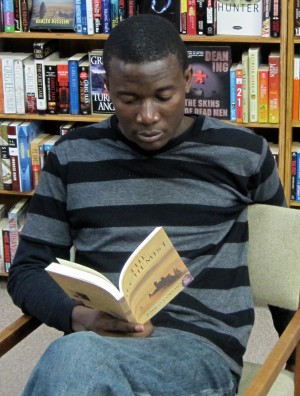 Kọ́lá is a linguist and writer, editor of the Aké Review 2015. His recent chapbook of poems, Fatherhood & Other Fatherhood Poems can be downloaded on Saraba Magazine. He is on twitter at @baroka and on KTravula.com, a travel blog.
Kọ́lá is a linguist and writer, editor of the Aké Review 2015. His recent chapbook of poems, Fatherhood & Other Fatherhood Poems can be downloaded on Saraba Magazine. He is on twitter at @baroka and on KTravula.com, a travel blog.


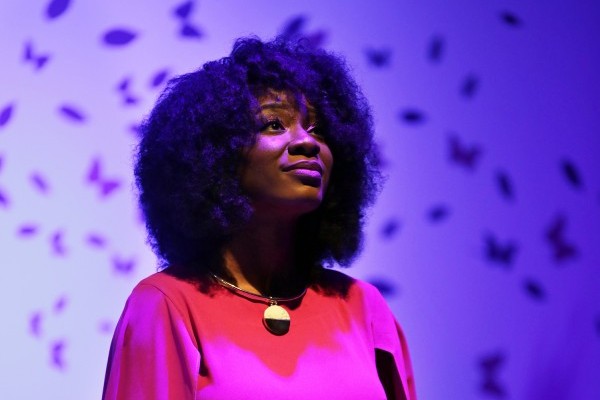
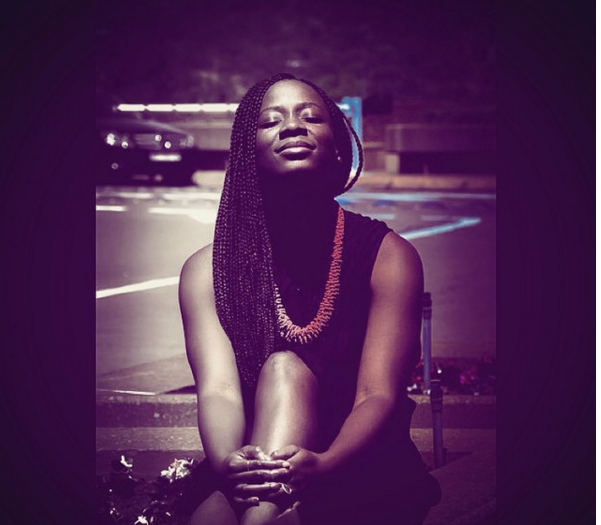
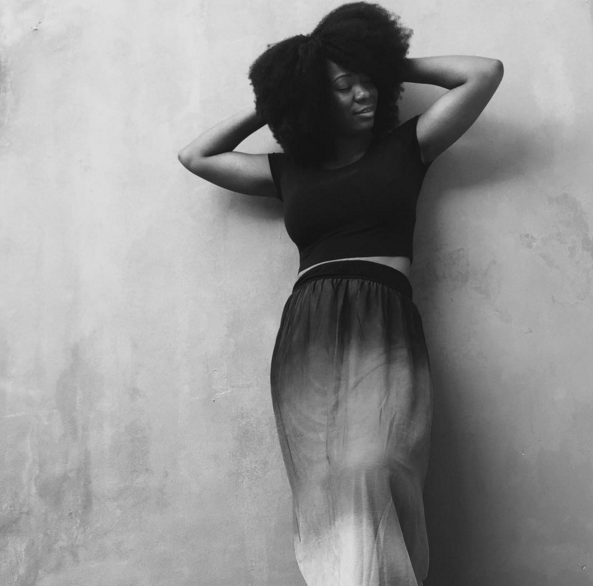
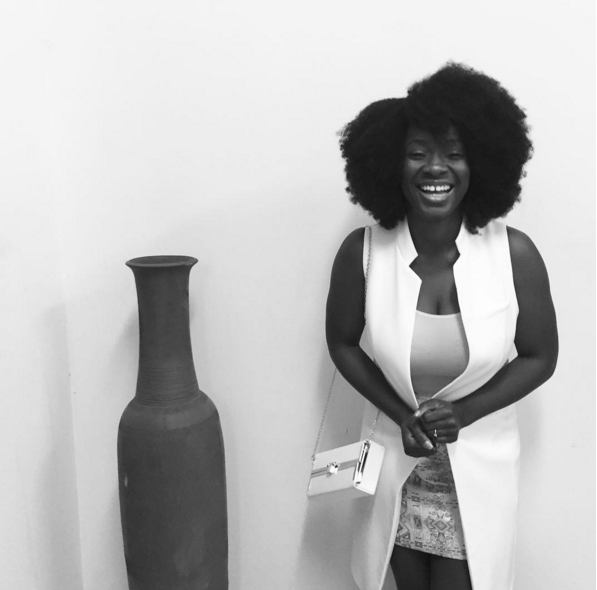
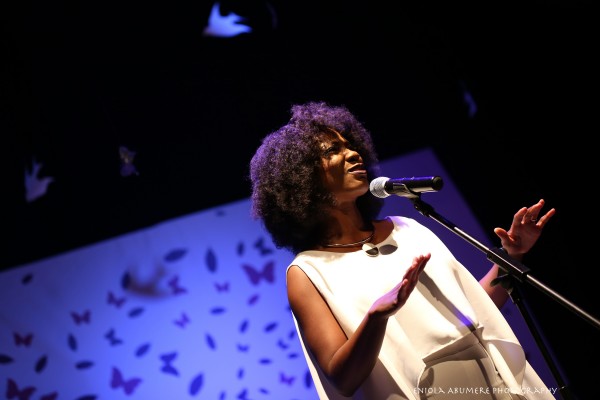

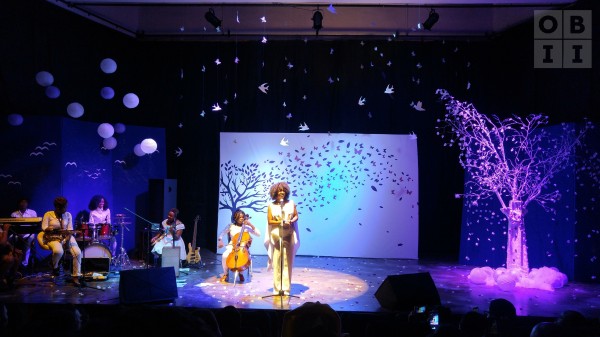
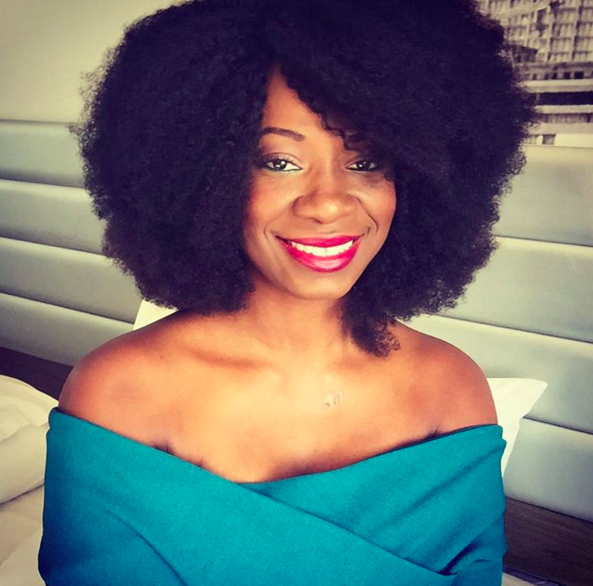






CURRENTLY LOVING…|JANUARY – Afoma Umesi March 26, 2017 16:10
[…] Titilope Sonuga’s interview on Brittle Paper was insightful. I love the woman. […]